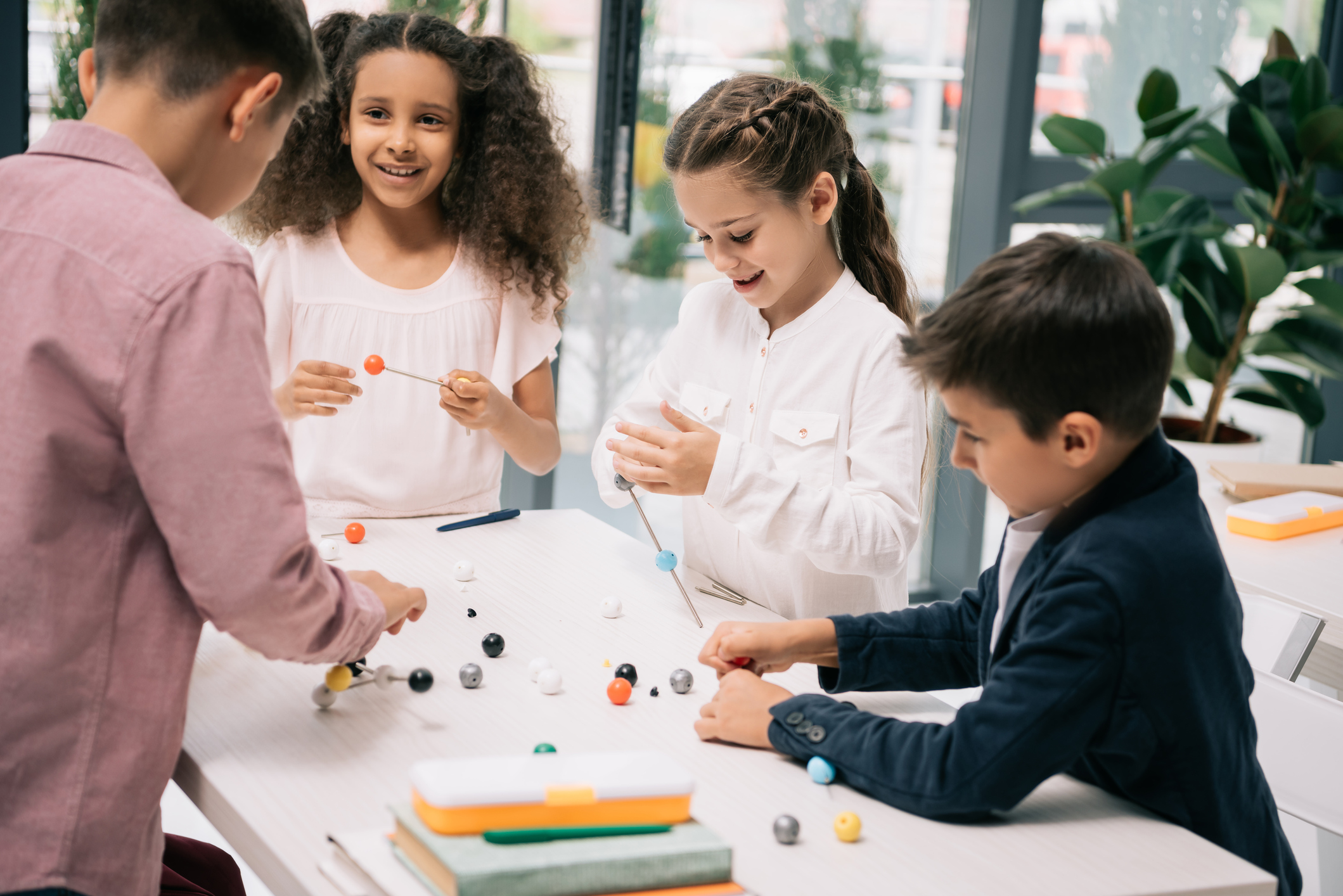
In the realm of early childhood education, the Montessori philosophy has long been associated with fostering holistic development. While its roots lie in early childhood education, the principles children learn extend gracefully into their elementary schooling and beyond.
In this blog post, we’ll discuss some of the nuanced ways in which Montessori principles can positively influence elementary school students. Beyond the initial stages of education, these principles unfold as a guiding force, emphasizing personalized learning, hands-on experiences, and a profound respect for each child’s journey.
So join us as we uncover the enduring impact of Montessori education beyond the preschool years—shaping enriched educational experiences for older students as well.
Advantages of the Montessori Approach to Education
The Montessori approach to education emphasizes learner-centric ideals to underscore personalized learning and the development of a lifelong curious nature.
One key advantage lies in Montessori’s prioritization of individualized instruction, tailoring education to a child’s unique pace, strengths, and interests. The method cultivates independence and a sense of responsibility, nurturing not just academic prowess but also essential life skills.
Hands-on learning experiences are integral, promoting a deep understanding of subjects through tactile exploration and discovery.
Multi-age classrooms also foster a supportive community where older students can mentor their younger peers, encouraging collaboration and social growth.
Furthermore, the Montessori approach cultivates a holistic view of education, embracing the cognitive, social, and emotional aspects of a child’s development. These benefits can extend into elementary education and beyond.
Building a Foundation for Elementary School
Montessori education lays a robust foundation by preparing young learners for the challenges of their academic careers. By emphasizing individualized learning, it caters to each child’s developmental pace and preferred learning style.
The hands-on, experiential approach not only instills an understanding of core academic concepts but also fosters a love for exploration and discovery.
Through self-directed activities, children learn to manage their time and make choices, promoting autonomy and decision-making skills essential for the transition to elementary education.
As a result, children emerging from Montessori environments possess academic readiness as well as a strong sense of self, curiosity, and social competence. This provides a solid and comprehensive foundation for their continued educational journey into elementary school, middle school, and high school.
Preparing Young Learners for Life Beyond Academics
Montessori’s emphasis on practical life skills is a cornerstone. Children are given the tools to succeed and opportunities to develop their fine motor skills and social acuity while cultivating a sense of spatial awareness. These skills not only foster independence but also lay the groundwork for self-sufficiency and a sense of self-accountability.
The Montessori approach places a premium on social development, with mixed-age classrooms encouraging collaboration and peer mentorship. This dynamic social setting also fosters greater empathy, effective communication, and conflict resolution skills, all of which are essential for navigating the complexities of the “real” world.
Moreover, the emphasis on respect for the individual promotes a positive self-image and a deep sense of respect for others as well, nurturing strong interpersonal relationships. The “freedom within limits” philosophy provides avenues to develop self-discipline as children learn to make choices within a structured environment. As a result, Montessori-educated individuals often exhibit qualities such as adaptability, critical thinking, and a genuine enthusiasm for lifelong learning.
In essence, Montessori education equips young learners with academic know-how, yes, but also with the life skills and values necessary to thrive in a diverse and ever-changing world.
Interested in Learning More?
The transformative impact of Montessori education on young minds extends well beyond their academic curriculum, shaping well-rounded individuals with a foundation for success in life. The emphasis on independence, practical life skills, and social development equips children with a formidable toolkit that extends far into their future.
As we reflect on the enduring benefits of the Montessori approach, we invite parents and caregivers to consider the enriching environment provided by Austin Children’s Academy.
If you envision a holistic education that goes beyond textbooks by fostering curiosity, independence, and a love for learning, we encourage you to learn more about us.
Contact us today to explore how our Montessori philosophy can nurture your child’s unique potential and prepare them for academic excellence and a fulfilling life ahead.
Your child’s journey to a better, brighter future begins here.





















